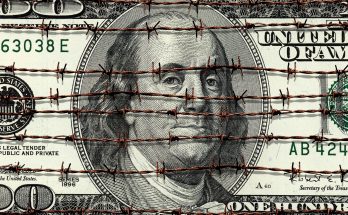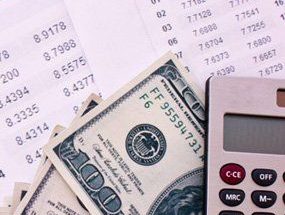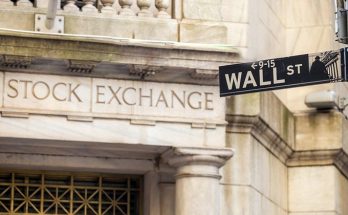In a dynamic free market, lenders—whether government-backed or privatized—compete for home buyers' business, which drives up or down average monthly interest rates on mortgage loans.
Based on corrected housing prices, tighter credit standards, and a declining surplus of unsold homes, the average interest rate on 30-year fixed mortgages has remained near historic lows from 2013 to 2021 but has started to rise in 2022, though are still at historically low levels.
Rising mortgage interest rates are nothing to fear and knowledge of the topic will ease housing market participants’ anxiety. It’s vital for housing market participants to understand rising mortgage rates, as they impact just about every aspect of buying a home.
Key Takeaways
When the economy is strong, interest rates tend to rise along with growth. Higher interest rates, however, translate into higher mortgage loan costs.Rising rates make homes more expensive for buyers, thereby reducing the demand for home purchases.Reduced demand also hurts sellers as they need to reduce the prices of their homes in order to attract buyers.If the economy grows fast enough, rising mortgage rates will not have as great an effect on property value and housing prices, as long as salaries and wages correspondingly grow as well.
Rising Interest Rates and Homebuyers
In the real estate business, conventional wisdom says that rising interest rates make buying or selling a home more difficult, and decreasing interest rates make buying and selling easier.
For example, if Johnny Home Buyer wants a 4% rate on a 30-year fixed mortgage on a home worth $400,000, his monthly mortgage payment would be $1,900. But if Johnny only qualified for a 5% rate on a 30-year fixed mortgage, his monthly payment would rise to $2,138. A 1% increase in interest raises Johnny's payment by $238, or roughly 13%. So, what does this mean for homebuyers?
From a home buyer's perspective, as mortgage rates increase, affordability decreases. In the aforementioned example, Johnny Home Buyer wants to qualify for a $400,000 mortgage at 4% interest, but at 5% interest, lenders can only offer Johnny a $355,000 loan based on his qualifications. A 1% increase in mortgage interest decreases Johnny's purchasing power by $45,000.
Before the Great Recession, during the peak of the subprime mortgage madness, Johnny Home Buyer would've been able to "qualify" for that $400,000 mortgage he wanted.
But to sweeten the deal, a subprime lender would have offered Johnny a 2% adjustable interest rate for the first five years. After five years, however, Johnny is on the hook for at least 7% interest, maybe more if interest rates spike.
Rising Interest Rates and Sellers
Rising mortgage rates affect sellers as well, though differently. For example, if Jill wants to sell her house for $400,000, she is more than welcome to list her home at that price. Due to rising interest rates, however, potential buyers can only afford Jill's home at $355,000.
Your credit score will drastically impact the interest rate that you receive on your mortgage. Try and improve your score before applying for a mortgage.
Indisputably, she can still make a profit on the sale, but only a 1% increase in mortgage rates diminishes the market value of Jill's home by about $45,000.
Her profit will depend on how well she plays the market. Essentially, if interest rates were to rise very rapidly, it would slam the brakes on the housing environment.
Rising Interest Rates and Property Value
Rising interest rates do have a very noticeable effect on buyers and sellers. Hypothetical situations prove that property value and housing prices directly correlate to mortgage rates, but what underlies both scenarios is the health of the economy.
If the economy grows fast enough, rising mortgage rates will not have as great an effect on property value and housing prices. For example, if mortgage rates increase one point, monthly payments increase by $238; however, a strong economy allows employers to increase salaries enough to help compensate for the rising interest rate.
As long as the economy continues to grow, and the economy continues to see job growth and wage growth, a rise in interest rates should not paralyze the housing market.
Rising Interest Rates and Real Estate Investing
As mortgage rates rise, the effect on real estate investing can be positive. The market for rental properties will increase because fewer people can qualify for mortgages. That said, rising interest rates reduce prices, so it can sometimes be better to buy during a rising interest rate environment.
Moreover, as interest rates rise, fewer real estate transactions will take place since lending standards will be tighter. Thus, more people will need rental properties until they can afford a mortgage. A 1% increase in interest for an investor can turn into a windfall of profit in the right housing market.
Buy or Sell?
Buying a home as mortgage interest rates are rising is nothing to fear. From a historical standpoint, a 5% mortgage rate is still remarkably low. And a mortgage today with a fixed rate for the next 30 years is still considerably cheaper than historical comparisons, as seen in data provided by mortgage lender Freddie Mac.
The annual average for 30-year fixed mortgage rates has not reached 5% since 2009. At the start of the Great Recession in 2006, the average mortgage rate was 6.41%. Ten years earlier in 1996, the average mortgage rate was 7.81%, and 10 years earlier than that in 1986, the average mortgage rate was 10.19%.
What Happens to Mortgages When Interest Rates Go Up?
When interest rates go up, mortgages become more expensive as the interest rate on mortgages also goes up. This makes it more costly for consumers to purchase a home. When homes are more expensive, the demand for them decreases. This results in a slump in the housing market. Sellers then reduce the price of their homes in order to attract buyers.
Are Rising Interest Rates Good for Mortgage Companies?
Yes, rising interest rates are good for companies that lend out money for home purchases. The higher the interest rate, the more a mortgage company/bank earns interest. This results in more revenues for the bank. Conversely, if interest rates are too high, resulting in a significant drop in the demand for mortgages, then mortgage companies can be hurt due to a lack of business.
Is It Better to Have Lower Closing Costs or a Lower Interest Rate?
Determining whether it is better to have lower closing costs or a lower interest rate will come down to the exact numbers and math. Generally, the best option is what results in the total overall cost of your home purchase being less. Typically, this would be a lower interest rate, as you will pay that interest rate over a long period of time if you don't refinance. This can result in lower monthly costs and lower overall interest paid on the mortgage.
The Bottom Line
Interest rates remaining near historic lows bodes well for buyers, and today’s market reflects some of the cheapest debt a home buyer will be able to attain in the market.
Most importantly, finding the right mortgage depends on receiving the right advice from a seasoned real estate expert who personally owns many properties and has transacted numerous real estate sales for others. Working with an expert enables prospective investors to feel more knowledgeable, confident, and secure with their financial decisions.
This article is from https://www.investopedia.com/, if there is any copyright issue, please contact the webmaster to delete it.









